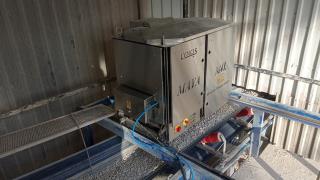While Portland cement is expected to remain the most-used cement type in concrete production, alternative cements are gaining importance. This has seen the continued development of alternative clinkers, such as belite-based low-carbon clinkers with a belite content of more than 40 per cent, in China over the last two decades. By Tongbo Sui, Sinoma Research Institute, China, Hao Sui, Monash University, Australia, and Bin Wang, Sinoma Research Institute, China.
Alite, as the most important constituent of normal Portland cement (PC) clinker, mostly accounts for 50-70 per cent of PC clinker mineralogical composition, while belite generally is 15-30 per cent. However, a study into the development of belite-based alternative clinkers has been ongoing for some time. The lower heat development and improved later-age strength of these clinkers was viewed as particularly beneficial in dam construction with mass concrete.1 The first successful use of belite-rich Portland cement (BPC) (ASTM C-150 Type IV, Low Heat Portland Cement) was applied in the construction of the Hoover Dam in the USA between 1931-36.1 However, BPC application was limited until the 1970s due to the construction industry’s concerns of very low early-age strength. During the 1970s global energy crisis, research into BPC saw a revival in many countries due to its low energy demand.2-6 Yet BPC was applied less on an industrial-scale until 1996 when China developed reactive belite-rich Portland cement (RBPC) (GB200-2003, Low Heat Portland Cement) as a type of low-energy, low-emission, high-performance cement with acceptable three- to seven-day early strength, 28-day strength equivalent to PC and improved durability. Since 2000 industrial manufacturing and field applications7-9 have held some hope of reversing the trend of clinkering more C3S with a finer cement particle size in the pursuit of higher early strength and a shorter turnaround time.10
